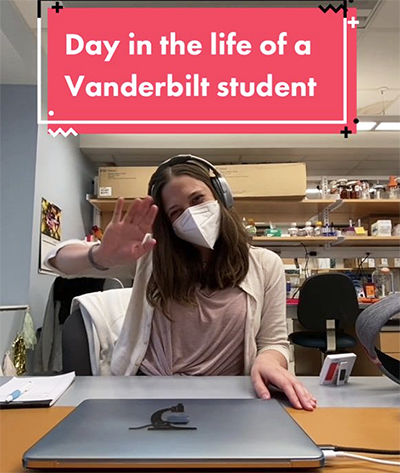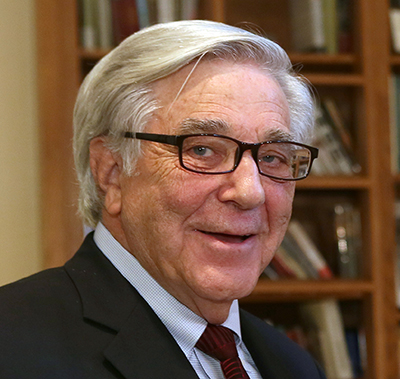Stephen Doster
-

Basic Sciences faculty and staff join Vanderbilt Leadership Academy, Vanderbilt Leadership Enrichment classes
Alyssa Hasty (associate dean for faculty, School of Medicine Basic Sciences), Claudia Paz (chief business officer, School of Medicine Basic Sciences), Tiffany Lawrence Givens (director of human resources, Basic Sciences Dean’s Office, School of Medicine), and Kimberly D. Turner (assistant dean of administrative operations, School of Medicine Basic Sciences) have been named to… Read MoreAug. 25, 2022
-

COVID antibody research conducted at VUMC lands national award
A long-acting antibody combination discovered at Vanderbilt University Medical Center that protects against COVID-19 in high-risk individuals, and which was optimized and developed by the global pharmaceutical company AstraZeneca, has received a gold medal in the 2022 R&D 100 awards program announced Aug. 22 by R&D World Magazine. Now… Read MoreAug. 25, 2022
-

New high-tech biobank safeguards critical specimens
Vanderbilt University Medical Center has opened a state-of-the-art automated biobanking system that can store as many as 10 million biospecimens, including blood and body fluids, tissue, and genetic and protein material, at temperatures down to minus 80 degrees Celsius. The “BioStore” was purchased from its manufacturer, Massachusetts-based Azenta Life… Read MoreAug. 25, 2022
-

Nanoparticles boost anti-cancer immunity
The growth of epithelial ovarian cancer, one of the most lethal malignancies, is associated with the presence of tumor-associated macrophages (TAMs), white blood cells that can block the anti-cancer activity of the immune system and immunotherapy. Fortunately, TAMs can be “repolarized,” converted from immunosuppressive tumor-promoters to inflammatory tumor-fighters. Now,… Read MoreAug. 18, 2022
-

Leveraging the structure of bacterial host cell receptors to detect cancer
Bacteria in our bodies bind to various host cell surface receptors, which determines where the bacteria live and how they behave. These receptors, made up of chains of sugar molecules called glycans, are more than meets the eye. Cells existing within progressive disease states like cancer can have an increased… Read MoreAug. 16, 2022
-

A day in the lab with Caroline Cencer
Spend a day in the Tyska lab with graduate student Caroline Cencer via this TikTok video! @CarolineCencer @TyskaLabActual… Read MoreAug. 12, 2022
-

Researchers create algorithm to help predict cancer risk associated with tumor variants
Vanderbilt researchers have developed an active machine learning approach to predict the effects of tumor variants of unknown significance, or VUS, on sensitivity to chemotherapy. VUS, mutated bits of DNA with unknown impacts on cancer risk, are constantly being identified. The growing number of rare VUS makes it imperative for… Read MoreAug. 9, 2022
-

Billy Hudson’s Aspirnaut program featured on NBC Nightly News with Lester Holt on August 2nd.
In Grapevine, Arkansas students spent more than two hours on the school bus every day for years. Local scientist Billy Hudson saw that time as an opportunity to create a “magic” school bus with internet and computers where students could spend time learning. Now, more than a decade later, Hudson… Read MoreAug. 3, 2022
-

Researchers find potential new target against colorectal cancer
Researchers at Vanderbilt University Medical Center have discovered a potential new target in the fight against colorectal cancer, the nation’s third most common malignancy and, next to lung cancer, the second leading cancer killer. This month in the journal Gastroenterology, R. Daniel Beauchamp, MD, Anna Means, PhD,… Read MoreAug. 2, 2022
-

Study reveals need for matching targeted therapies with EGFR subtypes
New research from Vanderbilt investigators suggests that clinicians should take a deeper dive into distinguishing EGFR mutations when prescribing targeted therapies for non-small-cell lung cancers. EGFR exon 19 deletion mutations are the most common EGFR mutations in patients with lung cancer. However, the term “exon 19 deletion” is a catch-all… Read MoreJul. 28, 2022